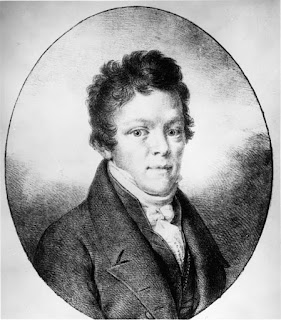Information
Composer: Juan Crisóstomo Arriaga; Jan Václav Voříšek
- Voříšek - Symphony in D major, Op. 24: 1. Allegro con brio
- Voříšek - Symphony in D major, Op. 24: 2. Andante
- Voříšek - Symphony in D major, Op. 24: 3. Scherzo. Allegro ma non troppo
- Voříšek - Symphony in D major, Op. 24: 4. Finale. Allegro con brio
- Arriaga - Overture to "Los esclavos felices"
- Arriaga - Sinfonía a gran orquesta: 1. Adagio
- Arriaga - Sinfonía a gran orquesta: 2. Andante
- Arriaga - Sinfonía a gran orquesta: 3. Minuetto
- Arriaga - Sinfonía a gran orquesta: 4. Allegro con moto
Scottish Chamber Orchestra
Charles Mackerras, conductor
Date: 1995
Label: Hyperion
http://www.hyperion-records.co.uk/dc.asp?dc=D_CDA66800
----------------------------------------------------------------------------
Review
A curious set of parallels links the two composers here. Both were child prodigies who died, within two months of each other, at an early age, of tuberculosis, in a foreign country (Arriaga, a Spaniard, in France at the age of 19, Vorisek, a Bohemian, in Austria at 34). And each wrote his only symphony around 1823 – in the key of D.
Both composers show themselves fond of Schubertian modulations and key shifts, but whereas Arriaga's chief influences seem to be Mozart (in the symphony's elegant Andante) and Rossini (in the sparkling Allegro of his Overture and the orchestral crescendo towards its end), Vorisek, who was brought up on Mozart and was in fact taught philosophy by Mozart's first biographer, plainly was already entering Beethoven territory, with striding bass figures in the first movement and, particularly, with the fiery scherzo (whose Trio features a solo horn). Arriaga calls his third movement a Minuet, but this too is in fact a scherzo, unusually constructed in one span rather than in binary form: the Trio here is devoted to a flute solo. The outer movements of this work are agitated, in the Sturm und Drang tradition, and Mackerras makes the most of the initial Allegro vivace's abrupt dynamic contrasts – more vividly dramatic than Savall. He secures considerable finesse in the SCO's performances – the lovingly phrased introduction to Arriaga's Overture and the ingratiating start of the Vorisek are seductive – but it is the excitable energy of the latter that brings forth the most spectacular playing: the tremendous vigour of its finale makes this a demonstration track. Wholeheartedly recommended.
-- Lionel Salter, Gramophone
More reviews:
http://www.classical-music.com/review/vorisekarriaga
http://www.amazon.com/Vorisek-Arriaga-Symphonies-D-Major/dp/B000002ZW9
----------------------------------------------------------------------------
Juan Crisóstomo Arriaga (January 27, 1806 – January 17, 1826) was a Spanish Basque composer. He was nicknamed "the Spanish Mozart" after he died, because, like Wolfgang Amadeus Mozart, he was both a child prodigy and an accomplished composer who died young. They also shared the same first and second baptismal names; and they shared the same birthday, January 27 (fifty years apart). The amount of Arriaga's music that has survived to the present day is quite small. His greatest works are the three string quartets, which contain notably Spanish ethnic rhythmic and melodic elements.
https://en.wikipedia.org/wiki/Juan_Cris%C3%B3stomo_Arriaga
https://en.wikipedia.org/wiki/Juan_Cris%C3%B3stomo_Arriaga
***
Jan Václav Voříšek (11 May 1791, Vamberk, Bohemia – 19 November 1825, Vienna, Austria) was a Bohemian composer, pianist and organist. A child prodigy, he attended the University of Prague before moving to Vienna to studied piano under Johann Nepomuk Hummel. In Vienna he became fast friends with Franz Schubert and soon won esteem as a composer of orchestral, vocal and piano music. Voříšek wrote only one symphony, his Symphony in D major, in 1821. Its style has been likened to Beethoven's first two symphonies, but its melodically inventive early Romantic idiom was similar to Schubert's
***
Charles Mackerras (17 November 1925 – 14 July 2010) was an Australian conductor. He was an authority on the operas of Janáček and Mozart, and the comic operas of Gilbert and Sullivan. Mackerras was known for his broad repertoire, expertise in Czech music, and use of period performance practices with modern orchestras. Mackerras recorded three Mahler symphonies and all of the symphonies of Mozart, Brahms and Beethoven. His final recording was Suk's Asrael Symphony in 2007. His final public performance saw him conduct Così fan tutte at Glyndebourne in the summer of 2010.
http://en.wikipedia.org/wiki/Charles_Mackerras
http://en.wikipedia.org/wiki/Charles_Mackerras
----------------------------------------------------------------------------
FLAC, tracks
Links in comment
Enjoy!




This comment has been removed by the author.
ReplyDeleteThank you one more time Ronald Do
ReplyDeleteThis comment has been removed by the author.
ReplyDeletegrazie mille
ReplyDeleteS.
Thank You !!!!!!!!!
ReplyDeleteCould you please re-upload this recording?
ReplyDeleteChoose one link, copy and paste it to your browser's address bar, wait a few seconds (you may need to click 'Continue' first), then click 'Free Access with Ads' / 'Get link'. Complete the steps / captchas if require.
ReplyDeleteGuide for Linkvertise: 'Free Access with Ads' --> 'Get [Album name]' --> 'I'm interested' --> 'Explore Website / Learn more' --> close the newly open tab/window, then wait for a few seconds --> 'Get [Album name]'
https://linkvertise.com/610926/a9hhV3943804303
or
https://uii.io/Ys2Vq1jzr9k3AT
or
https://exe.io/nPWB3